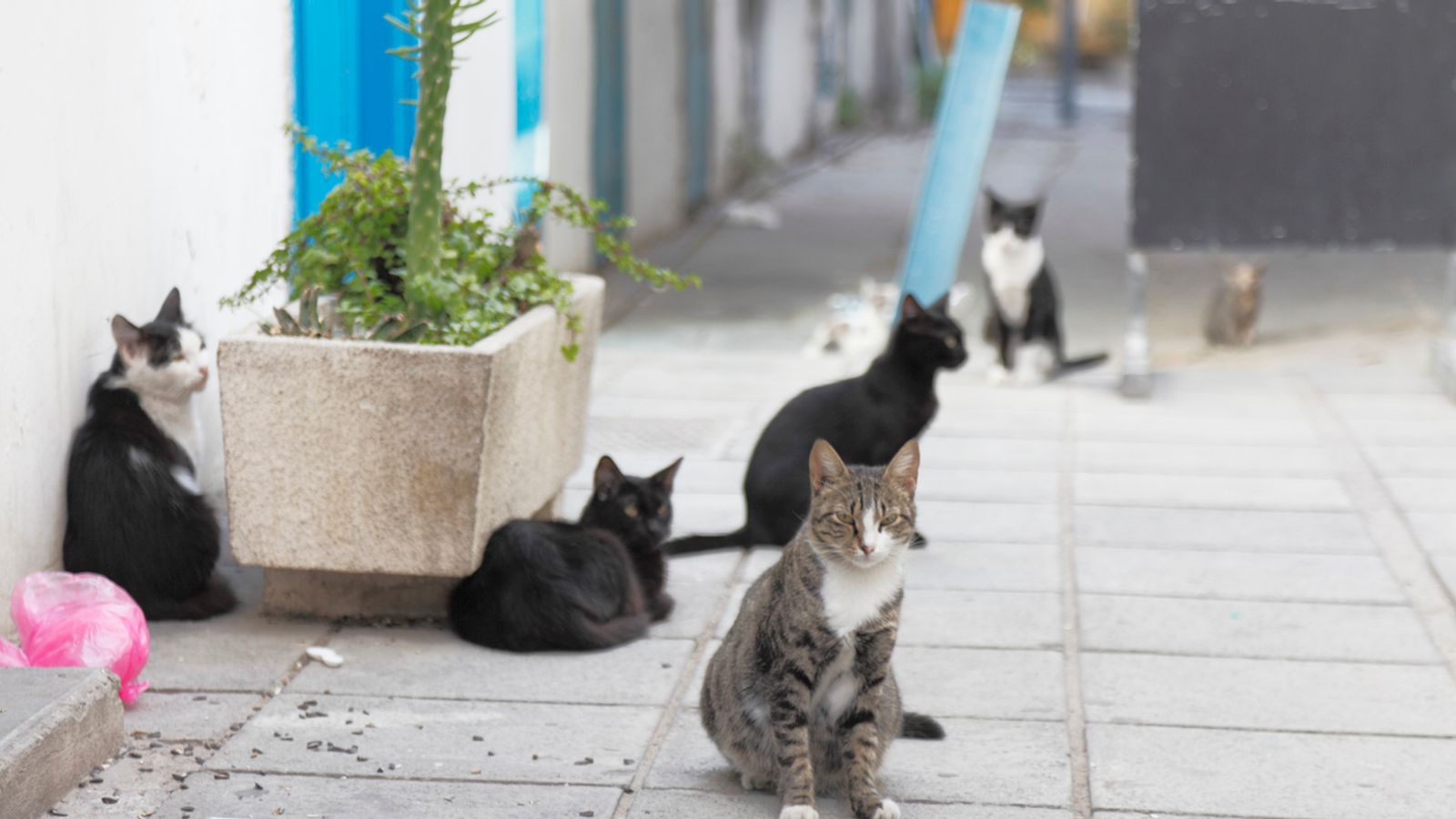Cats in Cyprus will be given human COVID-19 medicine after a feline mutation of the virus left thousands of the animals dead on the island.
Feline infectious peritonitis (FIP), which cannot be transmitted to humans, has been spreading among the island’s cats since January.
It is not related to COVID-19 but can be treated with a medication called Lagevrio, which is used to treat coronavirus in humans.
Dinos Ayiomamitis, head of Cats PAWS Cyprus, had earlier told Sky News the outbreak would have “catastrophic” consequences if it reached the UK.
Mr Ayiomamitis and other animals activists have said the virus has killed around 300,000 cats on the island.
However, Nektaria Ioannou Arsenoglou, director of the Pancyprian Veterinary Association, has said that figure is exaggerated.
She added a survey of 35 veterinary clinics indicated an island-wide total of about 8,000 deaths.
The association has praised the government’s decision to allow its stock of the human coronavirus medication to be used on cats.
It said it had petitioned the government for access to the medication at “reasonable prices” from the beginning of this year.
“We want to assure that we will continue to investigate and control the rise in case of FCov-2023,” the association said.
Read more from Sky News:
Tick bite leaves man with life-threatening meat allergy
New COVID variant spreading across UK
Christodoulos Pipis, the head of Cyprus Veterinary Services government department, said cat owners can receive the medication in pill form at €2.5 (£2.20) for each pill at their local vet’s office following a formal examination and diagnosis.
Costas Himonas, senior pharmacist at the Cyprus health ministry, has said 2,000 packages of the drug will be made available to vets incrementally over the next month.
Mr Himonas said there is no risk that current pharmaceutical stocks will be depleted to the point that treatment of any COVID-19 surge in people would be compromised.
FIP has been around since 1963 and is spread through contact with cat faeces.
Previous epidemics eventually fizzled out without the use of any medication, Ms Arsenoglou said.








